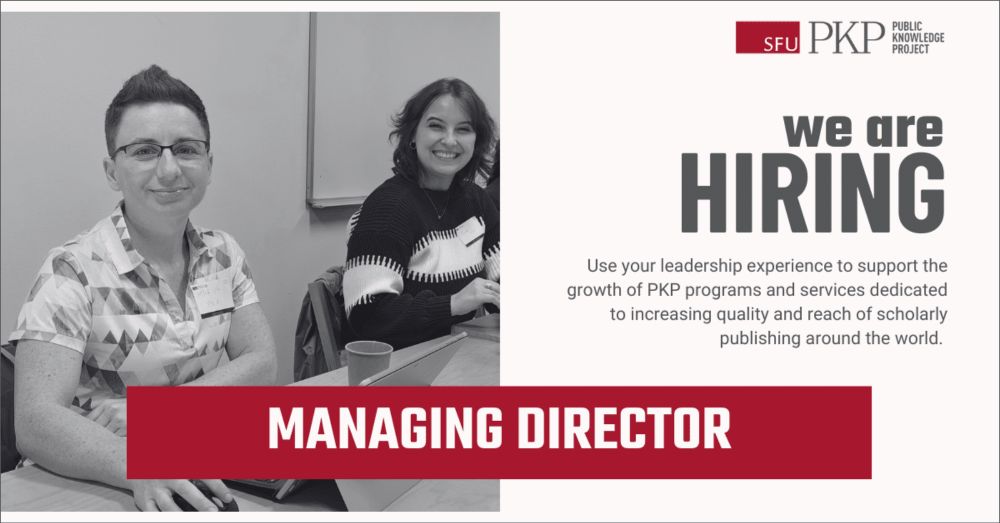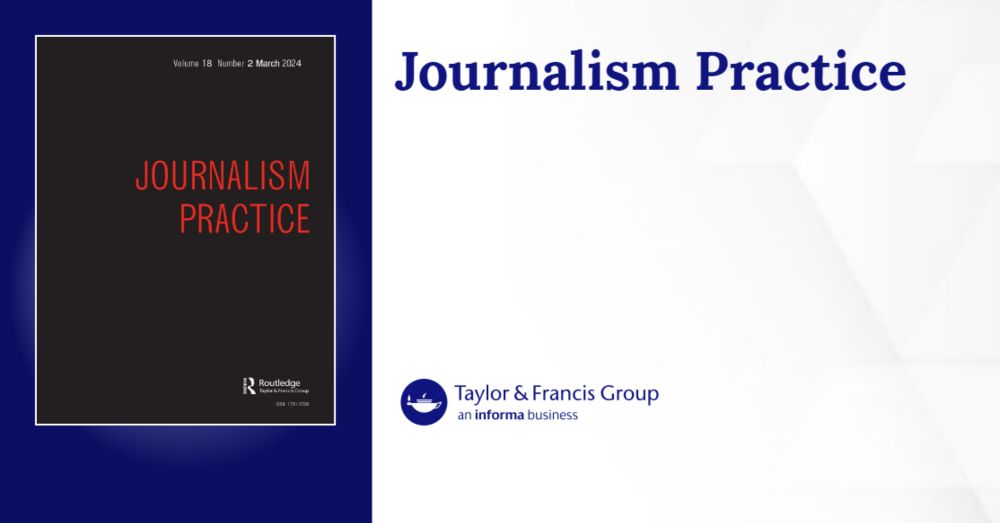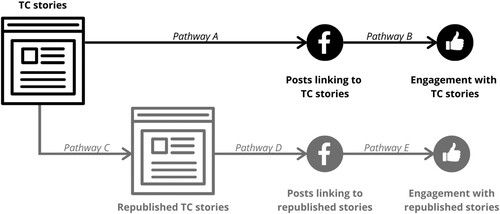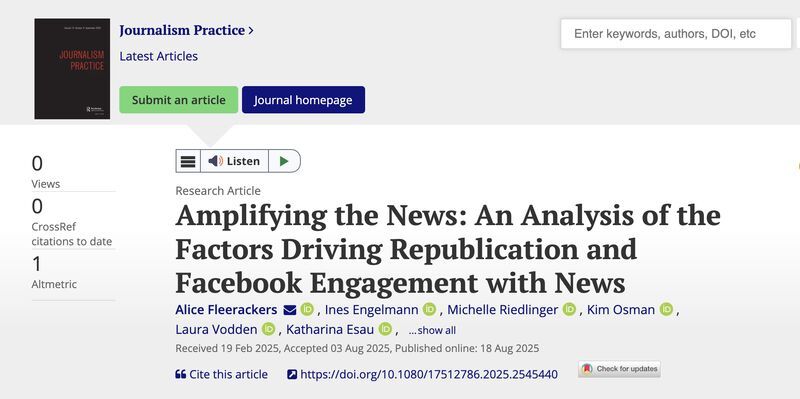Alice Fleerackers (she/her)
@fleerackers.bsky.social
760 followers
440 following
380 posts
Writer, researcher, terrible social media user | Assistant Prof @uvahumanities.bsky.social & VP of @pcstnetwork.bsky.social | studying journalism, #scholcomm & #scicomm | she/her
Posts
Media
Videos
Starter Packs
Pinned











